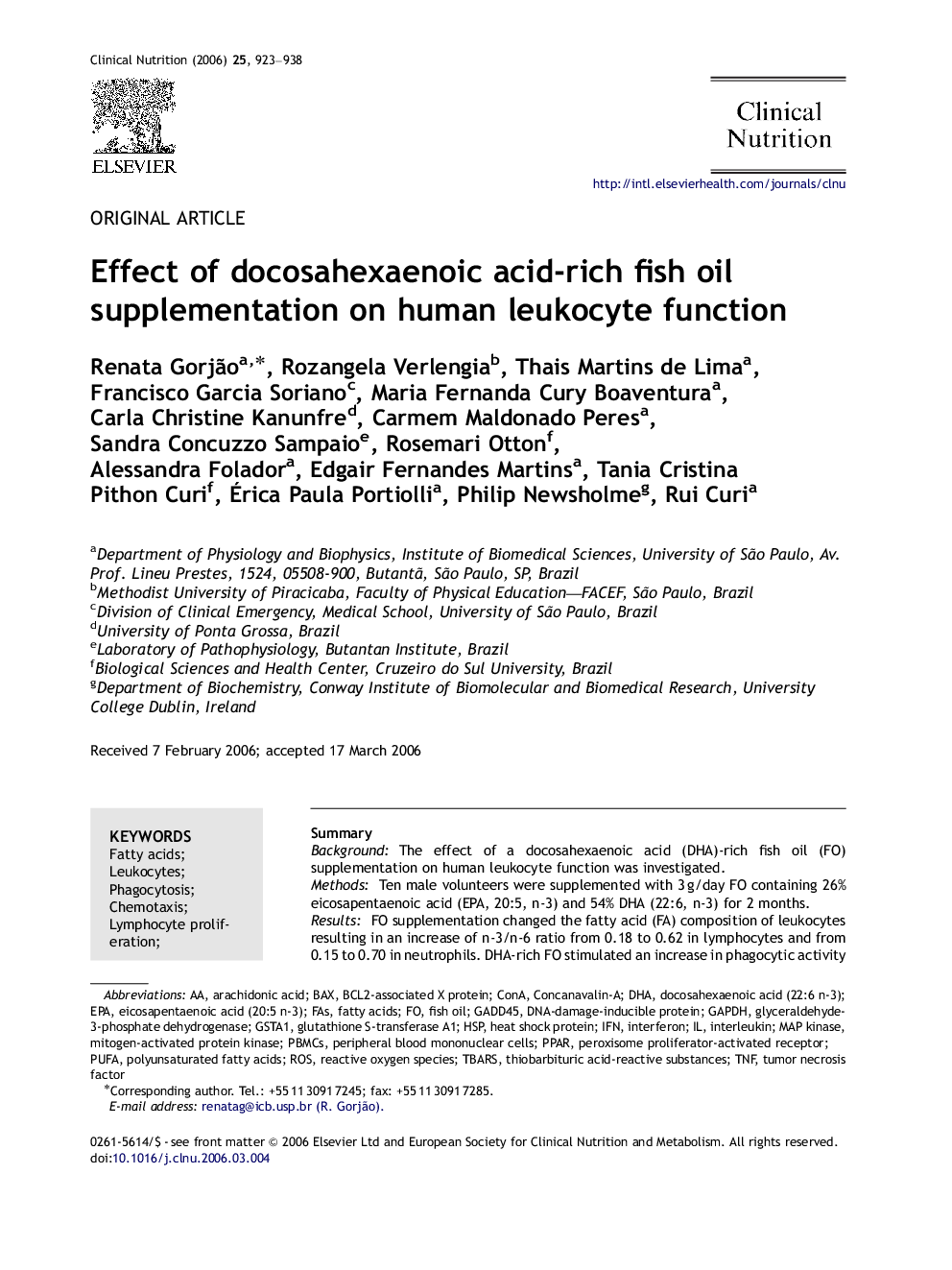| کد مقاله | کد نشریه | سال انتشار | مقاله انگلیسی | نسخه تمام متن |
|---|---|---|---|---|
| 2688672 | 1143123 | 2006 | 16 صفحه PDF | دانلود رایگان |

SummaryBackgroundThe effect of a docosahexaenoic acid (DHA)-rich fish oil (FO) supplementation on human leukocyte function was investigated.MethodsTen male volunteers were supplemented with 3 g/day FO containing 26% eicosapentaenoic acid (EPA, 20:5, n-3) and 54% DHA (22:6, n-3) for 2 months.ResultsFO supplementation changed the fatty acid (FA) composition of leukocytes resulting in an increase of n-3/n-6 ratio from 0.18 to 0.62 in lymphocytes and from 0.15 to 0.70 in neutrophils. DHA-rich FO stimulated an increase in phagocytic activity by 62% and 145% in neutrophils and monocytes, respectively. Neutrophil chemotactic response was increased by 128%. The rate of production of reactive oxygen species by neutrophils was also increased, as it was with lymphocyte proliferation. These changes were partially reversed after a 2-month wash out period. With respect to cytokine production by lymphocytes, interleukin (IL)-4 release was not altered, whereas secretions of IL-10, interferon (IFN)-γ and tumor necrosis factor (TNF)-α were raised. These results are in contrast to those described by others using EPA-rich FO supplementation. Lymphocyte pleiotropic gene expression was analyzed by a macroarray technique. Of the analyzed genes (588 in total), 77 were modified by the supplementation. FO supplementation resulted in up-regulation of 6 genes (GATA binding protein 2, IL-6 signal transducer, transforming growth factor alpha, TNF, heat shock 90 kDa protein 1-alpha and heat shock protein 70 kDa 1A) and a down regulation of 71 genes (92.2% of total genes changed). The largest functional group of altered genes was that related to signaling pathways (22% of the total modified genes).ConclusionsTherefore, although EPA and DHA are members of n-3 FA family, changes in the proportion of DHA and EPA exert different effects on neutrophil, monocyte and lymphocyte function, which may be a result of specific changes in gene expression.
Journal: Clinical Nutrition - Volume 25, Issue 6, December 2006, Pages 923–938